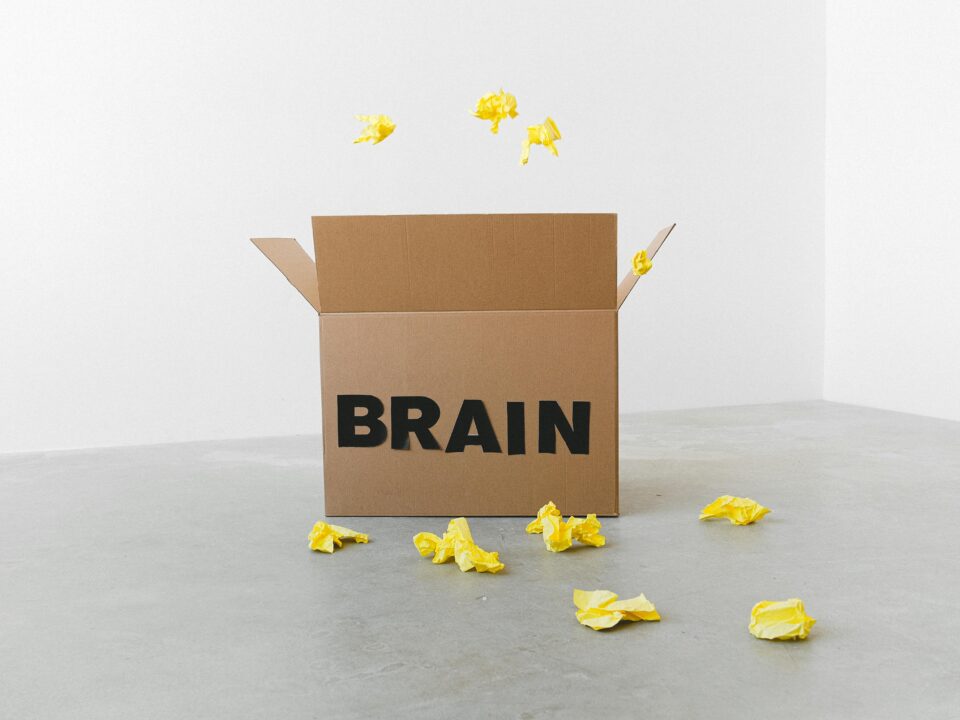Dyslexia and ADHD: What’s the Connection?

Featured Image by Karolina Grabowska, Pexels
Everyone in class is looking at you. The teacher looks annoyed. You look down at the paragraph you’ve been asked to read, but something’s wrong. The words don’t make sense. Or maybe they do, but you can’t concentrate long enough to read them – it’s too exhausting.
Twenty years later, things aren’t much better. Your boss is demanding a report by the end of the day, but every time you sit down to write, your mind drifts. Or you’re not sure how to form a complete sentence – you’ve managed to get this far without doing so, but with the constant fear that one day it’ll be unavoidable. This is that day.
These are the kinds of stresses you’ll face with ADHD and/or dyslexia.
What is ADHD?
ADHD is a neurodevelopmental condition that affects cognitive functions, such as self-control and concentration. It can manifest as predominantly hyperactive (fidgeting, squirming, interrupting), predominantly inattentive (distractibility, trouble focusing, daydreaming), or a combination of both. Roughly 5% of children have it, and for most it continues into adulthood.
What is Dyslexia?
Dyslexia is a language-based learning disorder that causes great difficulty reading, spelling, and recognizing words. It affects an estimated 5% to 11% of the population.
While both are distinct conditions, there is considerable overlap between them; over half of those with ADHD also have a learning disability, the most common being dyslexia. If you have dyslexia, there’s a roughly 30% chance you also have ADHD.
These links between both conditions cause some to struggle telling them apart. In some cases, this can stop individuals with either/both conditions receiving the proper help – someone with ADHD needs different support to a dyslexic, and vice versa.
To informally screen yourself for either, try our brief ADHD and dyslexia quizzes. But to learn more about the similarities and differences between both disorders, keep reading.
Is There a Link Between ADHD and Dyslexia?
While they are separate conditions, Dr. Thomas E Brown (clinical psychologist at Yale University) explains that both involve ‘broad executive function impairments’, affecting working memory and self-regulation. The primary difference here is that for dyslexics, this is unique to reading and language, while it affects the lives of people with ADHD much more broadly.
This is not to say that ADHD has no effect on reading, though. The International Dyslexia Association says that both people with ADHD and dyslexia can be ‘dysfluent readers’ – people who miss sections of what they’re trying to read and/or struggle to concentrate on what they’re reading.

Image by Kampus Production, pexels
Like ADHD, dyslexia presents differently in different people. Some may struggle with phonemic awareness, recognising and separating the sounds of letters. Others have more difficulty breaking whole words into separate syllables. Many more find it impossible to instantaneously recognise simple words, taking much longer to process and comprehend them.
What are the Similarities Between ADHD and Dyslexia?
Like ADHD, dyslexia appears to have a genetic component – those with dyslexic siblings are 50% likely to have dyslexia themselves (though research has yet to identify the precise causes).
In both dyslexic and ADHD brains, the impairments in executive function can be seen. ADHD brains show lower levels of norepinephrine and dopamine, while dyslexic brains show slightly less activity on the left side, responsible for the production of dopamine. Both may share some risk factors that could be responsible for this. such as tobacco/alcohol intake during pregnancy and low birth weight.
Because both are impairments in executive function, there is a lot of symptomatic overlap between ADHD and dyslexia. Both may show inhibited information processing, trouble with motor skills, working memory deficits, and certainly attention/concentration problems.
These issues can cause both groups difficulty in reading and writing. Like dyslexics, those with ADHD can have significant difficulty with organization and proofreading. If someone with ADHD finds reading particularly unstimulating, being made to do so for significant period of time – at school or in a job interview, for example – can be severely fatiguing.
Despite these adversities, however, individuals with ADHD and dyslexia can be notably creative; some studies suggest that a disproportionate number of entrepreneurs have one or both conditions, including Walt Disney (dyslexia) and Bill Gates (ADHD).
What are the Differences Between ADHD and Dyslexia?
It is important to be aware that despite similarities in presentation for some, ADHD is not a learning disability; the underlying causes are very different.
Dyslexia interrupts communication between pathways connecting the auditory, visual, and language centres in the brain. ADHD, on the other hand, is primarily a frontal lobe disorder, responsible for self-regulation, problem solving, memory, and other higher cognitive functions.
This means that dyslexia specifically creates trouble reading and writing. ADHD has much wider impacts on daily life, causing difficulty with time-management (keeping appointments, organising work projects, setting a sleep schedule, etc) and self-regulation (planning and executing projects, keeping emotions under control, and much more).
As we said earlier, ADHD can also create trouble reading – slower reading speed, in particular. The key difference is that this is not the result of inaccurate reading so much as a tendency to skip punctuation and/or lose your place on the page. So while both dyslexics and those with ADHD struggle with organisation and proofreading, dyslexics struggle with spelling and grammar in a way that ADHD individuals don’t.
Interestingly, another key difference is that dyslexics often show markedly above average abilities in auditory processing, while those with ADHD do not.
What is it Like to Have Both ADHD and Dyslexia?
For people with both conditions, life can be incredibly more challenging than it needs to be. This shows itself most starkly in securing/keeping employment – ADHD can make it hard to keep appointments and organise projects, while dyslexia can make job applications inscrutable. Both can limit career paths severely.

Image by Yan Krukau, pexels
On top of this, ADHD and dyslexia feed into each-other, each set of symptoms exacerbating the other. The damage to self esteem dyslexia creates can cause anxiety and depression, making ADHD symptoms all the harder to handle; dyslexia can present a massive hurdle in accessing support for ADHD. And due to limited popular understanding of and institutional support for both conditions, dyslexics with ADHD can find themselves shut out of the workplace, even facing poverty and homelessness.
Getting them mixed up with each other isn’t helpful for anyone. In order to effectively treat either, both conditions need to be addressed simultaneously. Managing ADHD can improve concentration and organisation, but it can’t cure dyslexia. Likewise, putting a treatment plan in place for a dyslexic is best done with awareness of how their ADHD affects their lives.
For more information on ADHD and dyslexia, as well as access to our free CV support and career coaching services, please visit the links below.
ADHD Resources
Dyslexia Resources
What is Dyslexia?
Dyslexia Quiz
If you’re looking for job support, you can send us your CV for free feedback, or sign up for neurodiverse career coaching.




